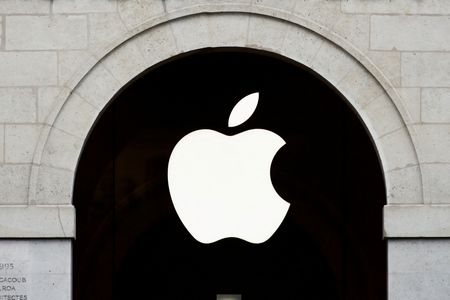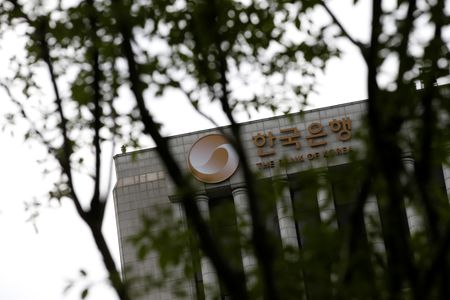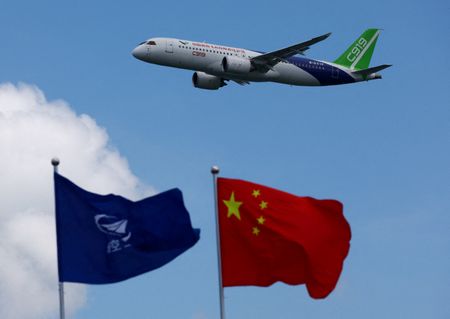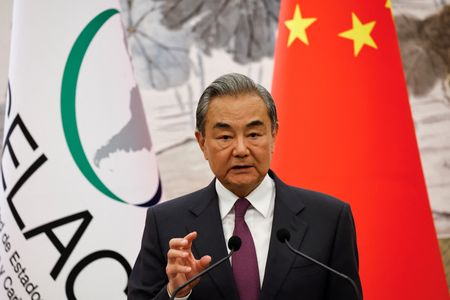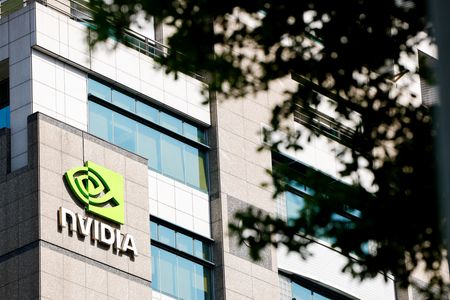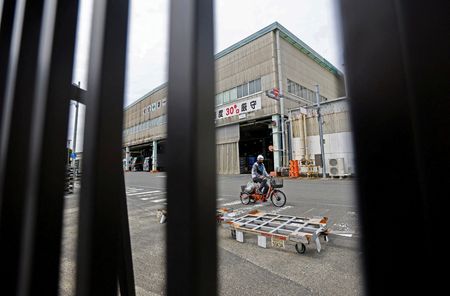By Shashwat Chauhan and Medha Singh
(Reuters) -Apple is closing in on a historic $4 trillion stock market valuation, powered by investors cheering progress in the company’s long-awaited AI enhancements to rejuvenate sluggish iPhone sales.
The company has pulled ahead of Nvidia and Microsoft in the race to the monumental milestone, thanks to an about 16% jump in shares since early November that has added about $500 billion to its market capitalization.
The latest rally in Apple shares reflects “investor enthusiasm for artificial intelligence and an expectation that it will result in a supercycle of iPhone upgrades,” said Tom Forte, an analyst at Maxim Group, who has a “hold” rating.
Valued at about $3.85 trillion as of the last close, Apple dwarfs the combined value of Germany and Switzerland’s main stock markets.
The Silicon Valley firm, driven by the so-called iPhone supercycles, was the first U.S. company to hit previous trillion-dollar milestones.
In recent years, the company has attracted criticism for being slow to map out its artificial intelligence strategy, while Microsoft, Alphabet, Amazon and Meta Platforms have pulled ahead to dominate the emerging technology.
Shares of Nvidia, the biggest AI beneficiary, have surged more than 800% over the past two years, compared to the near doubling in shares of Apple during the same period.
Apple earlier in December started integrating OpenAI’s ChatGPT into its devices after unveiling plans in June to integrate generative AI technology across its app suite.
The company expects overall revenue to increase “low- to mid-single digits” during its fiscal first quarter – a modest growth forecast for the holiday shopping season – sparking questions about the momentum for the iPhone 16 series.
However, LSEG data showed analysts expect revenue from iPhones to rebound in 2025.
“Although near-term iPhone demand is still muted … it is a function of limited Apple Intelligence features and geographic availability, and as both broaden, it will help to drive an improvement in iPhone demand,” Morgan Stanley analyst Erik Woodring said in a note, reiterating Apple as the brokerage’s “top pick” heading into 2025.
The recent surge in shares has pushed Apple’s price-to-earnings ratio to a near three-year high of 33.5, compared to 31.3 for Microsoft and 31.7 for Nvidia, according to LSEG data.
Warren Buffett’s Berkshire Hathaway has sold shares of Apple – its top holding – this year, as the conglomerate broadly retreated from equities on concerns over stretched valuations.
“I suspect the stock in three years will not look as expensive as it does today,” said Eric Clark, portfolio manager of the Rational Dynamic Brands Fund, which holds Apple shares.
Apple faces the risk of retaliatory tariffs if U.S. President-elect Donald Trump delivers on his promise to slap tariffs of at least 10% on goods coming from China.
“We believe it’s likely Apple gets exclusions on products like iPhone, Mac and iPad, similar to the first round of China tariffs in 2018,” Woodring said.
Apple’s shares tumbled last Wednesday amid a Wall Street selloff after the Federal Reserve forecast a slower pace of rate cuts next year but investors expect the broad trend of monetary easing to support stock markets next year.
“Technology has been regarded by investors as a new form of a defensive sector because of their earnings growth,” said Sam Stovall, chief investment strategist at CFRA Research.
The Fed’s action “could end up having a greater impact on some of the other cyclical areas such as consumer discretionary and financials and less so on technology.”
“Apple’s approach to $4 trillion market cap is a testament to its enduring dominance in the tech sector. This milestone reinforces Apple’s position as a market leader and innovator,” said Adam Sarhan, chief executive officer of 50 Park Investments.
(Reporting by Shashwat Chauhan and Medha Singh in Bengaluru; additional reporting by Aditya Soni and Purvi Agarwal; Editing by Sriraj Kalluvila)

